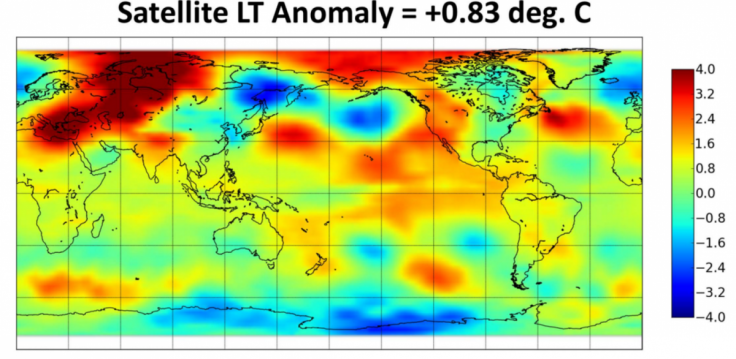Hot February shatters records as scientists warn global warming is advancing more rapidly

This year is shaping up to be possibly the hottest in human history after satellite readings showed how February obliterated the temperature record set in January.
The record comes as a new study warns that the rate of warming around the globe is faster than previously predicted with dire consequences quickly moving up the timeline.
For the month of February 2016, Earth was 0.83C warmer than the long-term average, and rose almost 0.3 degrees from the warmest level in January (2016) on record.
Former Nasa scientist Roy Spencer, now at the University of Alabama in Huntsville, said there were "whopping" temperature anomalies in certain regions. Areas outside the tropics in the northern hemisphere were 1.46C above average, 0.5C above any previous monthly anomaly, Spencer said.
Some regions of the Arctic were 16C above normal.
February's record-shattering satellite reading joins recent ground-based temperature readings in hitting new heights, reports the Washington Post. In January, the US National Oceanographic and Atmospheric Administration reported the warmest global monthly temperature anomaly on record in its analysis.
March is already in heat overdrive and has hit a troubling milestone, Slate reported. Average temperatures across the northern hemisphere breached the 2C above "normal" mark for the first time in recorded history.
That milestone has long been held as the point above which climate change may begin to become "dangerous" to humanity. It has now arrived — though very briefly — more quickly than anticipated.
That's in line with what researchers in Australia have discovered.
Scientists from the University of Queensland and Griffith University developed a "global energy tracker" which predicts that average world temperatures could climb 1.5C above pre-industrial levels by 2020, which indicates a 2C rise by 2030.
The UN conference on climate change in Paris last year determined a 2C rise is the absolute limit before island nations will be in crisis.
The numbers, published in the journal Plos One, were based on the first model to include energy use per person — which has more than doubled since 1950 — along with economic and population growth as a way of predicting carbon emissions and temperature increases.
The revealed earlier-than-expected advance of global warming increases the urgency to switch from fossil fuels to renewables, the researchers warned.
"Economists and environmentalists are on the same side and have both come to the same conclusion: we've got to act now and we don't have much time," University of Queensland researcher Ben Hankamer told the Guardian.
© Copyright IBTimes 2025. All rights reserved.






















